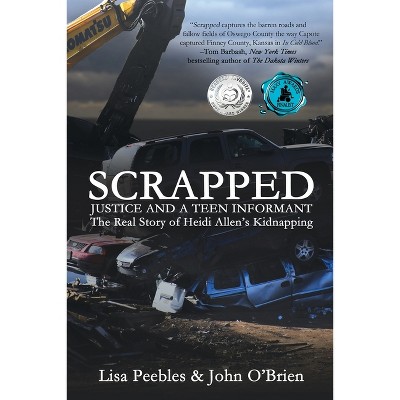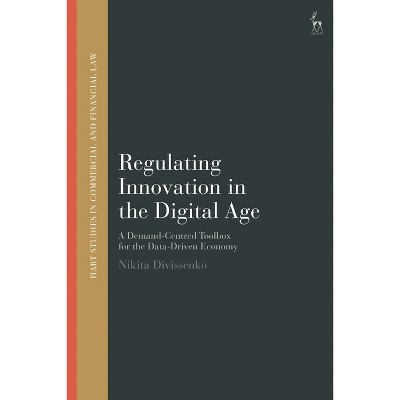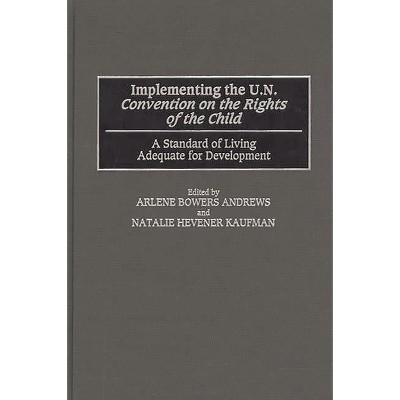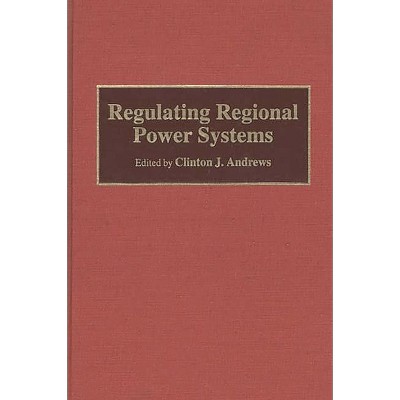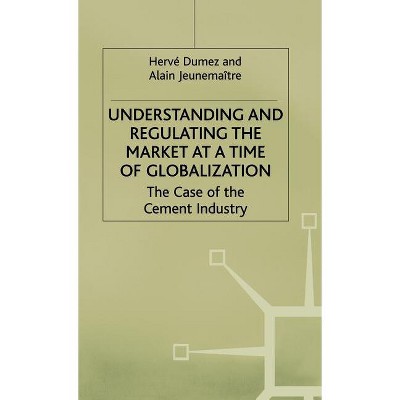Sponsored

Regulating the Regulators - by James R Bowers (Hardcover)
In Stock
Sponsored
About this item
Highlights
- Increasingly, state regulations are implemented and exercised by the administrative discretion of state bureaucracies.
- About the Author: JAMES R. BOWERS is an Assistant Professor of Political Science at St. John Fisher College, Rochester, New York.
- 156 Pages
- Freedom + Security / Law Enforcement, Civil Procedure
Description
About the Book
Increasingly, state regulations are implemented and exercised by the administrative discretion of state bureaucracies. This increased rulemaking activity threatens to rival, or even replace, state legislatures as the principal source of new laws emanating from state government. To combat this, state legislatures now routinely seek to regain their preeminence as lawmakers by overseeing administrative rulemaking authority. This oversight is frequently conducted through a process known as rules review. The process, a systematic form of legislative oversight, encourages the responsible exercise of rulemaking authority by requiring legislative scrutiny of proposed regulations prior to final adoption by the issuing agency. Regulating the Regulators presents an introduction to rules review. James R. Bowers examines this process through an in depth case study of the Illinois General Assembly.
Regulating the Regulators presents an introduction to this important and widely used method of oversight by state legislatures. The author poses three basic questions about rules review that previous works have not asked: Why is a state legislature likely to incorporate rules reviews in its oversight arsenal? What is the substance and nature of rules review likely to be? What factors are likely to contribute to agency responsiveness to rules review? These questions are examined through an in depth case study of the rules review process in the Illinois General Assembly. From this case study, Regulating the Regulator develops a number of analytic generalizations upon which future research and a more general understanding of rules review can be built. Students of both legislative an administrative process, as well as state legislators and state level public administrators, will find Regulating the Regulators a valuable source of information. This book is particularly well-suited for upper-level undergraduate and graduate courses in state governement and politics, administrative process, regulatory politics, and administrative theory.
Book Synopsis
Increasingly, state regulations are implemented and exercised by the administrative discretion of state bureaucracies. This increased rulemaking activity threatens to rival, or even replace, state legislatures as the principal source of new laws emanating from state government. To combat this, state legislatures now routinely seek to regain their preeminence as lawmakers by overseeing administrative rulemaking authority. This oversight is frequently conducted through a process known as rules review. The process, a systematic form of legislative oversight, encourages the responsible exercise of rulemaking authority by requiring legislative scrutiny of proposed regulations prior to final adoption by the issuing agency. Regulating the Regulators presents an introduction to rules review. James R. Bowers examines this process through an in depth case study of the Illinois General Assembly.
Regulating the Regulators presents an introduction to this important and widely used method of oversight by state legislatures. The author poses three basic questions about rules review that previous works have not asked: Why is a state legislature likely to incorporate rules reviews in its oversight arsenal? What is the substance and nature of rules review likely to be? What factors are likely to contribute to agency responsiveness to rules review? These questions are examined through an in depth case study of the rules review process in the Illinois General Assembly. From this case study, Regulating the Regulator develops a number of analytic generalizations upon which future research and a more general understanding of rules review can be built. Students of both legislative an administrative process, as well as state legislators and state level public administrators, will find Regulating the Regulators a valuable source of information. This book is particularly well-suited for upper-level undergraduate and graduate courses in state governement and politics, administrative process, regulatory politics, and administrative theory.Review Quotes
.,."it is a clearly written and a perceptive look into the Illinois General Assembly's wrestling with the problem of administrative discretion and the creation of its own little bureaucracy."-Illinois Issues
"Bowers draws two general conclusions about the utility of rules review: First, '...it clearly provides some degree of oversight of the administrative discretion in rulemaking, ' and second, '...an advisory rules review process can educate state legislators to the importance of revising rulemaking authority in light of administrative experience and ...[make] state agencies responsible to the rule of law rather than the vague expectation of informal politcs.' This is a far cry from reasserting legislative control of runaway rulemaking. Regulating the Regulators is not light reading, but it is clearly written and a perceptive look into the Illinois General Assembly's wrestling with the problem of administrative discretion and the creation of it own bureaucracy."-Illinois Issues
?...it is a clearly written and a perceptive look into the Illinois General Assembly's wrestling with the problem of administrative discretion and the creation of its own little bureaucracy.?-Illinois Issues
?Bowers draws two general conclusions about the utility of rules review: First, '...it clearly provides some degree of oversight of the administrative discretion in rulemaking, ' and second, '...an advisory rules review process can educate state legislators to the importance of revising rulemaking authority in light of administrative experience and ...[make] state agencies responsible to the rule of law rather than the vague expectation of informal politcs.' This is a far cry from reasserting legislative control of runaway rulemaking. Regulating the Regulators is not light reading, but it is clearly written and a perceptive look into the Illinois General Assembly's wrestling with the problem of administrative discretion and the creation of it own bureaucracy.?-Illinois Issues
?This brief volume focuses on how a state legislature oversees administrative rulemaking by executive branch agency administrators. Bowers here considers the role of the Illinois legislature's Joint Committee on Administrative Rules (JCAR) between 1978 and 1986 in reviewing administrative rules established and implemented by agency administrators. These administrative rules established and regulations they fashion affect the daily lives of that electorate. The JCAR has largely advisory authority, yet it can suspend a proposed regulation for six months if it decides that the public interest, safety, or welfare is threatened. According to Bowers, JCAR staff management plays a dominant role in how reviews are conducted, and elected committee members from both houses of the legislature rely very heavily on staff recommendations. (JCAR can also encourage the legislature to take corrective action through the legislative process.) This case study of Illinois suggests a consistent and rather formal adversarial relationship between committee staff and agency administrators. In other states, New York for example, there is a more informal relationship between the two, and agencies generally put a high priority on responsiveness to the legislature. A useful, interesting methodological essay is appended. Recommended for college and university collections.?-Choice
..."it is a clearly written and a perceptive look into the Illinois General Assembly's wrestling with the problem of administrative discretion and the creation of its own little bureaucracy."-Illinois Issues
"This brief volume focuses on how a state legislature oversees administrative rulemaking by executive branch agency administrators. Bowers here considers the role of the Illinois legislature's Joint Committee on Administrative Rules (JCAR) between 1978 and 1986 in reviewing administrative rules established and implemented by agency administrators. These administrative rules established and regulations they fashion affect the daily lives of that electorate. The JCAR has largely advisory authority, yet it can suspend a proposed regulation for six months if it decides that the public interest, safety, or welfare is threatened. According to Bowers, JCAR staff management plays a dominant role in how reviews are conducted, and elected committee members from both houses of the legislature rely very heavily on staff recommendations. (JCAR can also encourage the legislature to take corrective action through the legislative process.) This case study of Illinois suggests a consistent and rather formal adversarial relationship between committee staff and agency administrators. In other states, New York for example, there is a more informal relationship between the two, and agencies generally put a high priority on responsiveness to the legislature. A useful, interesting methodological essay is appended. Recommended for college and university collections."-Choice
About the Author
JAMES R. BOWERS is an Assistant Professor of Political Science at St. John Fisher College, Rochester, New York. He has published articles in Comparative State Politics Newsletter and the American Review of Public Administration.Shipping details
Return details
Trending Non-Fiction





